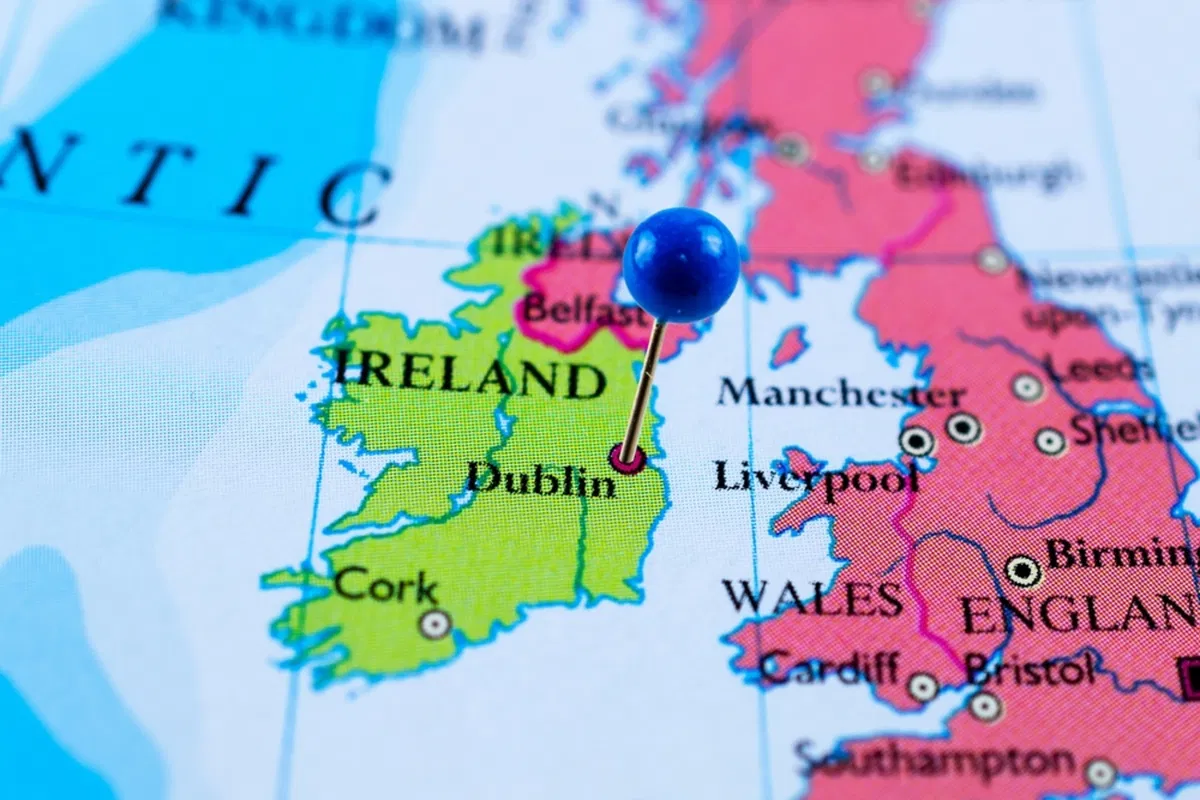By Letara Draghia
A United Ireland could cost €3 billion in the first year, but the long-term financial burden would disappear within a decade, according to a major new peer-reviewed study from Dublin City University and Ulster University.
The report challenges previous high estimates of the cost of unification, stating that earlier projections have “grossly exaggerated the probable real cost of unity.”
United Ireland: €3 billion estimate
The total cost includes:
€1.7 billion public spending deficit inherited from Northern Ireland
€1 billion in additional public investment for health, welfare, education and infrastructure
€152 million annually for 15 years to equalise public sector wages
€115 million annually for 40 years to cover state pension transfers
The report suggests this spending is “well within what could be afforded” and would support Northern Ireland’s economic growth if it were re-integrated into the EU.
The report criticises the common claim that Northern Ireland receives between €11.5 billion and €16.1 billion in annual UK subsidies. It recalculates the figure at just €1.7 billion, based on tax revenues, pensions, defence, and shared UK central costs.
DCU Vice President for Research, Professor John Doyle, argues that Northern Ireland could match the Republic’s economic performance over time:
“With the same set of policies on education, infrastructure, tax and Foreign Direct Investment, there is no obvious reason why Northern Ireland would remain so much poorer,” he said (Cited by the BBC.)
Convergence would take time
Northern Ireland’s public sector wages are currently 48 per cent lower than the Republic’s. Around 29 per cent of the North’s workforce would be impacted by the proposed wage increases.
Economic growth would also play a key role. Between 2000 and 2024, the Republic grew at 3.2 per cent annually, while Northern Ireland only managed 1.3 per cent. The report estimates that with the right policies, NI could end its subsidy dependence in 5–9 years.
Ulster University’s Dr Eoin Magennis added:
“This paper sets out the ambitious level of growth needed to close gaps in public finances… a fresh set of choices needing to be made” (BBC News).
However, some economists remain sceptical.
Dr Esmond Birnie argues that Professor Doyle “rather optimistically assumes” the UK would cover all public pension obligations and release Northern Ireland from its share of UK debt.
“Major constitutional change is neither a necessary or sufficient condition of improving economic performance… this report does not provide evidence that a United Ireland per se would spur performance” (BBC News).
This latest report adds fresh fuel to the growing debate on Irish unification. While some view the costs as manageable and potentially beneficial in the long term, others warn against over-optimistic projections.
Would a United Ireland be worth the initial €3 billion price tag? Let us know your thoughts in the comments below.
View all news from Ireland.
